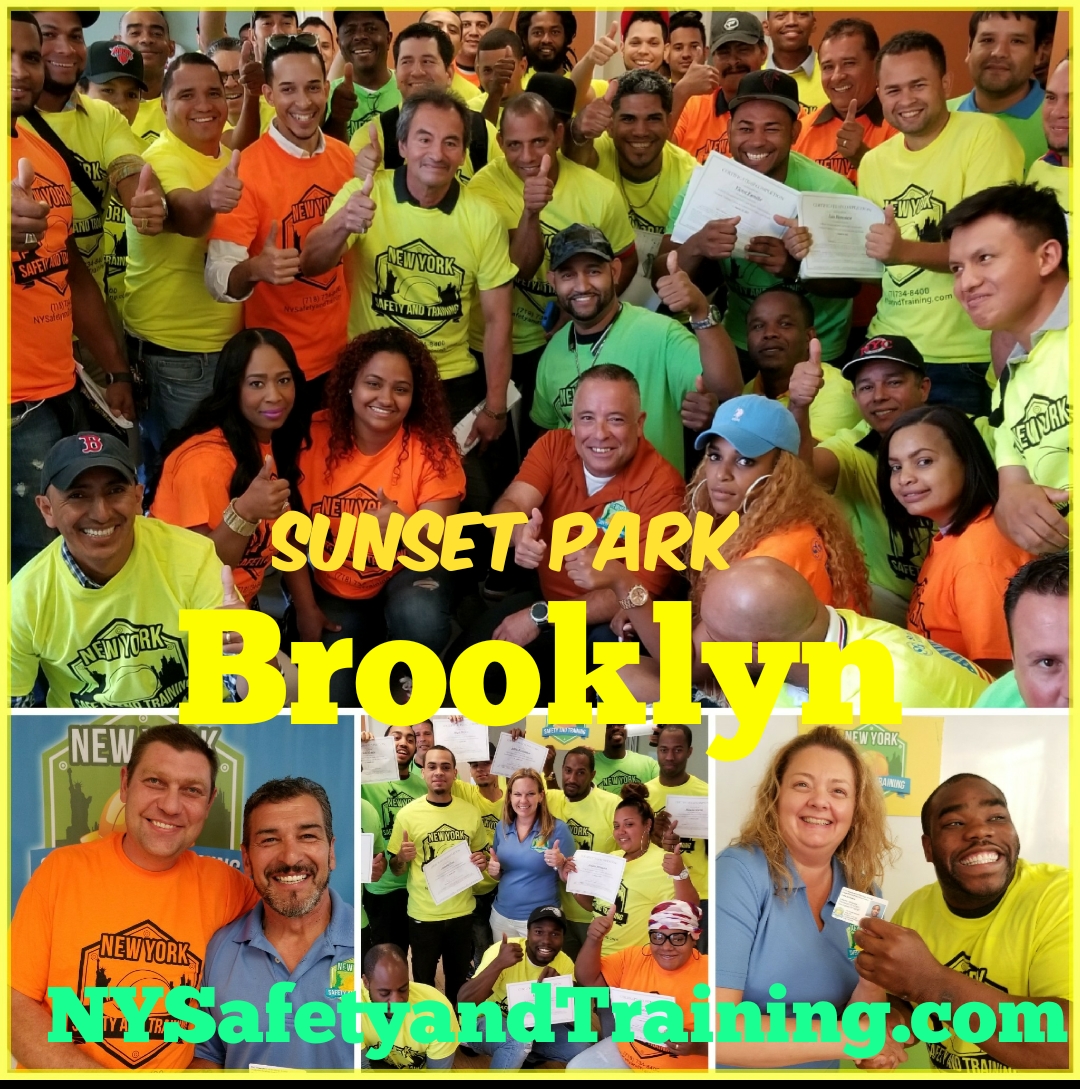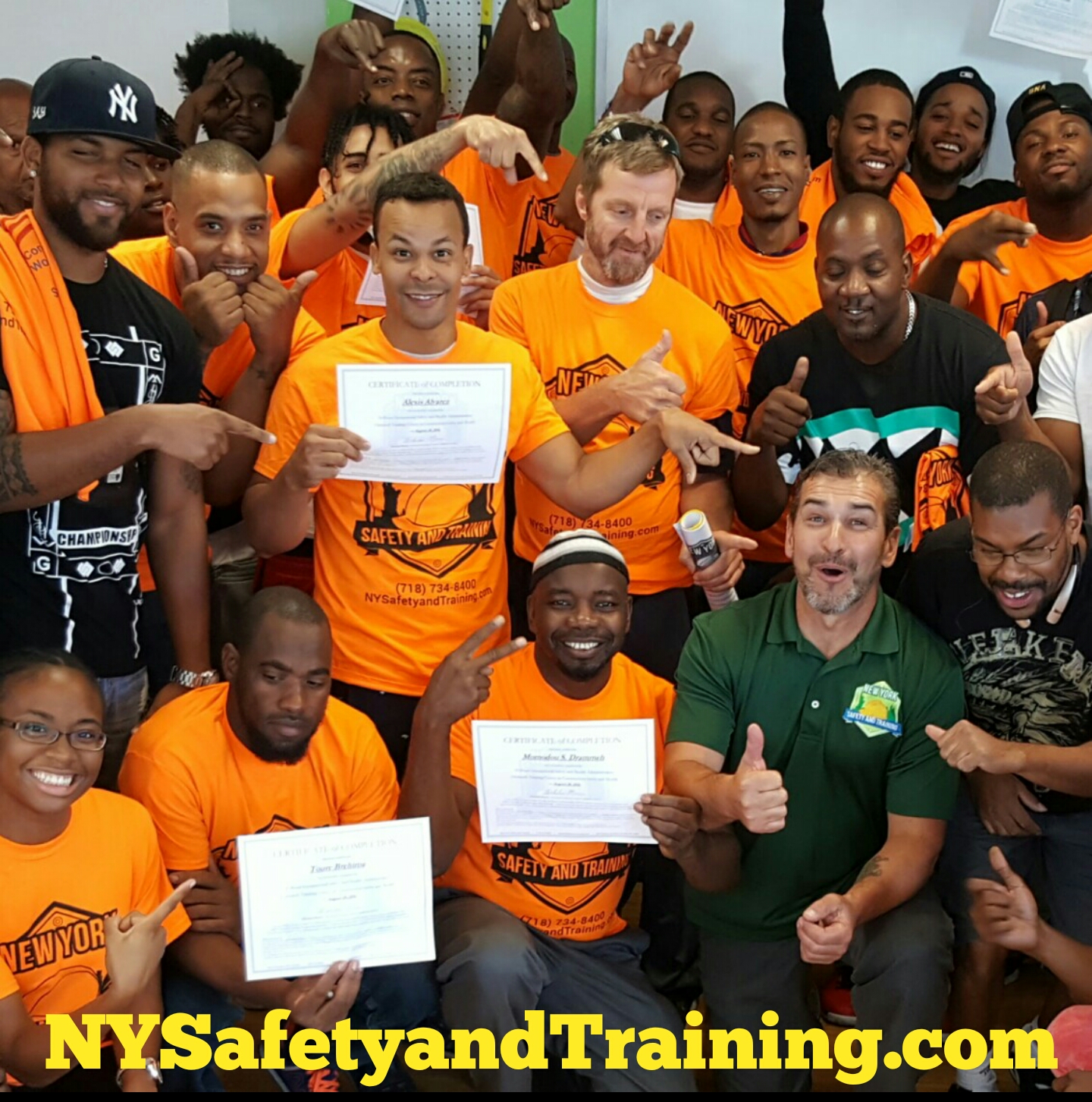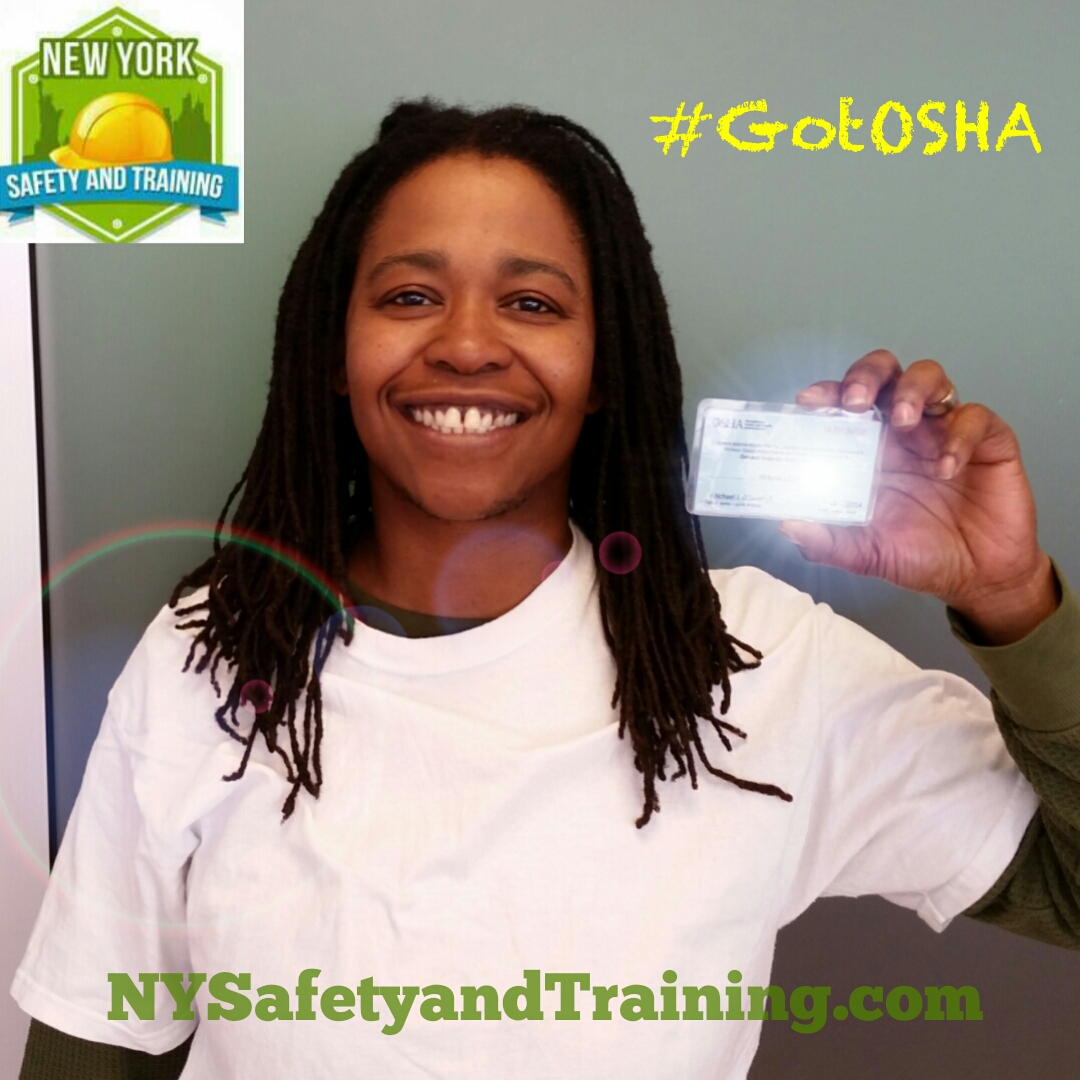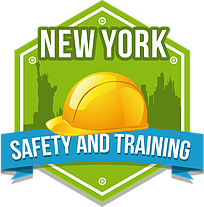This 10-hour safety course is geared for general industry employees, which includes all employees not in the construction, maritime, or agricultural fields. Many employers in fields such as building maintenance, warehouse assembly, and security prefer to hire candidates already holding the OSHA 10 General Industry certification.
NYST offers the OSHA 10 General Industry one weekend a month, Saturday and Sunday, 8:30 AM – 2:30 PM in the Bronx only $140 at the door; discount pricing is available to students who register and pay through this website.
NYST is happy to arrange onsite training at your location for a minimum of 10 students at $180 per person.


OSHA 10-Hour General Industry – Designated Training Topics.
This training program is intended to provide entry level general industry workers information about their rights, employer responsibilities, and how to file a complaint as well as how to identify, abate, avoid, and prevent job related hazards on a job site. The training covers a variety of general industry safety and health hazards which a worker may encounter. Training will emphasize hazard identification, avoidance, control, and prevention, not OSHA standards.
OSHA mandates that the 10 hours of training be broken into 7 hours of mandatory topics, 2 hours of elective topics, and 1 hour of optional topics as follows:
Mandatory – 7 hours
Introduction to OSHA – 2 hours. Covers workers’ rights, employer responsibilities, and how to file a complaint. It includes helpful worker safety and health resources. It also provides samples of a weekly fatality and 3 catastrophe report, material data safety sheet, and the OSHA Log of Work-Related Injuries and Illnesses.
Walking and Working Surfaces, including fall protection – 1 hour: Covers trip hazards and considerations of different surfaces that employees may have to walk and work on.
Exit Routes, Emergency Action Plans, Fire Prevention Plans, and Fire Protection – 1 hour: Covers emergency evacuation procedures and routes.
Electrical – 1 hour: Covers electrical hazards and the dangers involved with working with electrical equipment.
Personal Protective Equipment – 1 hour: Covers the proper, effective use of personal protective equipment (such as hearing protection, safety goggles, and gloves), including statistics of injuries related to the failure to properly use personal protective equipment.
Hazard Communication – 1 hour: Covers the proper way to label and catalogue hazardous materials and chemicals, such as cleaners and photocopier toner cartridges.
Elective – 2 hours
The instructor will teach two to four of the following topics:
Hazardous Materials: Covers safety considerations involving potentially harmful chemicals or objects.
Materials Handling: Covers diverse operations such as hoisting tons of steel with a crane, driving a truck loaded with concrete blocks, manually carrying bags and material, and stacking drums, barrels, kegs, lumber, or loose bricks.
Machine Guarding: Covers safety risks related to any moving parts of machines on premises. This topic is most common to industrial or MAKING work places which have such as a printing press or assembly line.
Introduction to Industrial Hygiene: Industrial hygiene is the science of anticipating, recognizing, evaluating, and controlling workplace conditions that may cause workers’ injury or illness. Specifically, this topic covers considerations of ventilation and circulation of potentially hazardous fumes or vapors in the work place.
Bloodborne Pathogens: Covers the dangers associated with potential exposure to pathogenic microorganisms in the blood that could carry hepatitis B virus (HBV) and human immunodeficiency virus (HIV), among other pathogens.
Ergonomics: This topic teaches how the use of Ergonomics, which is fitting a job to a person, helps lessen muscle fatigue, increase productivity, and reduce the number and severity of work-related musculoskeletal disorders.
Safety and Health Program: Covers topics for consideration for creating, implementing, and enforcing your own workplace Safety and Health Programs
Fall Protection: Covers ways to protect workers against fall hazards. This topic is particularly useful to industries with heightened fall dangers, such as stage actors or lighting technicians.
Optional – 1 hour
There is also an hour reserved for optional safety training. We can tailor an additional topic to a specific client (such as water safety if the client is a school with a swimming pool), or what most often happens is this hour is reserved for any of the previous topics that the students are particularly engaged in and want to spend more than the allotted time on. It is often helpful for the instructor to have this hour at his or her disposal to be able to devote to any topic in which the students are especially engaged.


